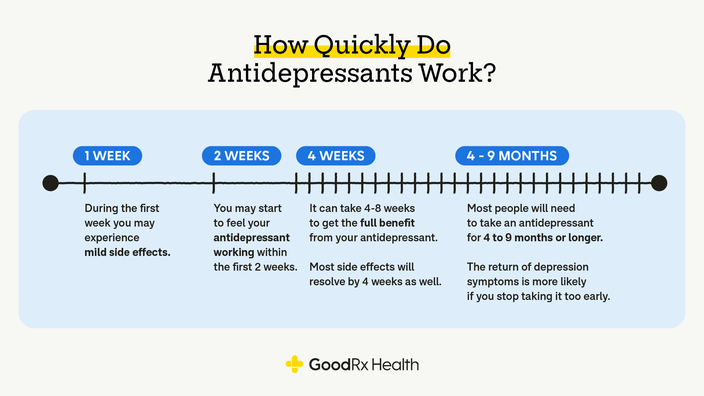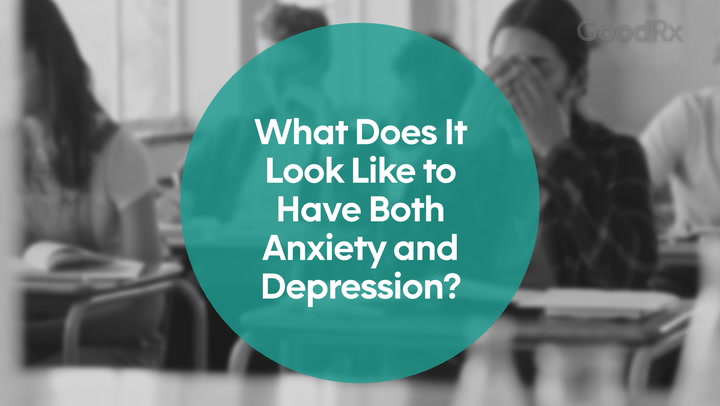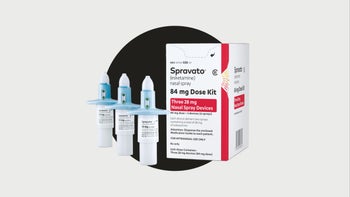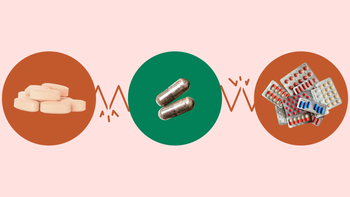
How Long Does It Take for Antidepressants to Work?
Key takeaways:
It may take about 4 to 8 weeks before you get the full benefit from your antidepressant. But you might see some symptoms improve within 1 to 2 weeks.
You may feel mild side effects after starting an antidepressant. Side effects are most common after starting a new medication or after a dose change, but they usually go away after the first couple weeks.
Let your healthcare provider know if you’ve been taking your antidepressant for 4 weeks or more with no improvement. They may recommend you raise your dose or try another antidepressant.
Table of contents
Most people agree that taking care of your mental health is important. Sometimes referred to as “self-care,” it means taking time to do things that help you feel your best. Self-care looks different for everybody. For some people, it might simply mean eating well and getting enough sleep.
But if you feel that you’re showing signs of depression, an antidepressant might be the best way you can take care of yourself. Antidepressants can be useful tools in helping overcome feelings of depression and anxiety.
If you’re prescribed an antidepressant, you might wonder how long it will take to kick in. Well, that can depend on each person and the specific medication you take.

How do antidepressants work?
Antidepressants work by raising the levels of certain chemicals in the brain. These chemicals — called neurotransmitters — help regulate our mood and stress levels. Experts believe that abnormal neurotransmitter levels might cause depression and other mental conditions. These include serotonin, dopamine, and norepinephrine.
Pay as little as $10 on your prescription
Auvelity® (dextromethorphan HBr and bupropion HCI) patients can pay as little as $10 for a 30- or
90-day supply of AUVELITY. Terms and conditions apply.
Prescribing Information | Please see Important Safety Information and Medication Guide, including Boxed Warning


AUVELITY, AXSOME, and its logos are trademarks or registered trademarks of Axsome Therapeutics, Inc. or its affiliates. Other trademarks are property of their respective owners. ©2024 Axsome Therapeutics, Inc. All rights reserved.
PP-AUV-US-2300101 04/2024
Even though these medications are called antidepressants, they’re not just used for depression. Healthcare providers often prescribe antidepressants to help with panic disorder, some types of chronic pain, and obsessive-compulsive disorder (OCD).
Here’s a quick look at some common types of antidepressants:
|
Type of antidepressant |
Examples of medications |
|
Selective serotonin reuptake inhibitors (SSRIs) |
Escitalopram (Lexapro) Fluoxetine (Prozac) Sertraline (Zoloft) |
|
Serotonin and norepinephrine reuptake inhibitors (SNRIs) |
Duloxetine (Cymbalta) Desvenlafaxine (Pristiq) Venlafaxine (Effexor XR) |
|
Bupropion (Wellbutrin SR, Wellbutrin XL) Mirtazapine (Remeron) Vilazodone (Viibryd) |
How long does it take antidepressants to work?
The American Psychiatric Association (APA) states that it can take 4 to 8 weeks for an antidepressant to be fully effective. For example, a famous clinical trial looked at almost 3,000 people taking citalopram (Celexa) for depression. Most people who experienced a significant improvement in depression symptoms only did so after 6 to 8 weeks of treatment.
But this doesn’t mean you won’t feel any relief sooner than this. Some symptoms may improve within the first couple weeks. For example, paroxetine (Paxil) was found to improve symptoms of anxiety within 1 week of treatment. And by week 2, depression symptoms also improved. But this was a small study of only 70 people.
Other research has shown that antidepressants may improve another symptom of depression — negative affective bias — within a couple weeks. Negative affective bias describes our tendency to pay more attention to negative emotions than positive ones. For example, a study of people taking venlafaxine found that it helped minimize negative effective bias. But this specific study only looked at 17 people.
How do I know if my antidepressant is working?
You’ll know your antidepressant is working if you experience positive changes to your mood and wellbeing, like having more energy to do daily tasks or looking forward to events in your life. But keep in mind that antidepressants are simply meant to help treat symptoms that may interfere with your everyday life. Unfortunately, they’re not miracle pills. And it may take a few tries to find an antidepressant that works for you.
Antidepressants also work best when you combine them with other good self-care practices. This can be difficult, but try to get enough sleep, eat well, and live an active lifestyle. Your healthcare provider may also recommend working with a counselor or therapist.
Quiz: Is your antidepressant working?
When should I talk to my healthcare provider if I don’t think my antidepressant is working?
Once you’ve taken your antidepressant for 4 weeks, let your healthcare provider know how you’re feeling. Your provider may check if your symptoms have improved by using a questionnaire designed to track depression symptoms.
After 4 weeks, they can help you figure out if you’ve had a good response to your antidepressant. If you don’t feel any symptom improvement after 4 weeks, or if you are having side effects, your healthcare provider may decide to change your dose or switch you to a different antidepressant.
Will I need to take my antidepressant forever?
If your healthcare provider recommends an antidepressant, talk to them about how long they expect you to take it. You and your provider will decide what length of treatment is best.
Unfortunately, there’s a high relapse rate for people who stop antidepressants. This means it's not unusual for people who stop antidepressants to become depressed again. The APA recommends at least 4 to 9 months of treatment with an antidepressant after remission (relief from depression symptoms) has been achieved.
A large review of over 300 studies showed that continuing your antidepressant for at least 6 months after remission helps lower the chance that your depression symptoms will return. Other sources recommend up to 12 months of treatment with an antidepressant after remission occurs. And some people may need antidepressants for a few years if they have a high chance of their depression returning.
Will I feel side effects from my antidepressant?
While you’re waiting to feel the positive effects of your antidepressant, you may notice you’re feeling something else: side effects. The side effects you experience will depend on what type of antidepressant you’re taking.
For example, common side effects of SSRIs and SNRIs include:
Nausea and upset stomach
Common side effects for bupropion can include:
Headache
Upset stomach
Insomnia
Common side effects for mirtazapine can include:
Sleepiness
Dry mouth
Greater appetite and weight gain
Constipation
If you’re having side effects from your antidepressant, talk to your healthcare provider. While side effects usually improve once your body adjusts to the medication, your healthcare provider may have tips for managing side effects in the meantime.
For example, if your antidepressant makes you tired, you may be able to take it at night. They also may recommend adjusting your dose or switching medications if your side effects are unmanageable. Never try to adjust your dose or stop an antidepressant on your own.
Call your healthcare provider right away if you experience any side effects that worry you. This includes any unusual changes in your mood or behavior. Children, teens, and young adults may be more likely to experience suicidal thoughts or actions when starting a new antidepressant or changing doses. Get help right away if this happens. You can call the National Suicide Prevention Lifeline by dialing 988.
The bottom line
Antidepressants may take a while to kick in. You may feel some depression symptoms improve within the first couple weeks, but it can often take 4 to 8 weeks to feel the full effects of your medication. If you’ve taken your antidepressant for at least 4 weeks with no improvement, let your healthcare provider know. They may change the dose or recommend a new medication.
Unfortunately, you might feel some side effects before you start to feel the benefits from your antidepressant. But keep in mind that these early side effects typically get better with time. Check in with your healthcare provider right away if you have any side effects that worry you, or if you notice that your mood is getting worse instead of improving.
Why trust our experts?



References
988 Suicide and Crisis Lifeline. (n.d.). 988 Suicide and Crisis Lifeline.
Adams, S. M., et al. (2008). Pharmacologic management of adult depression. American Family Physician.
American Psychiatric Association. (2010). Treating major depressive disorder: A quick reference guide.
American Psychological Association. (2019). Depression assessment instruments.
Endocrine Society. (2022). Adrenal hormones.
familydoctor.org. (2022). How to safely take antidepressants.
Gaynes, B. N., et al. (2009). What did STAR*D teach us? Results from a large-scale, practical, clinical trial for patients with depression. Psychiatric Services.
Harmer, C. J., et al. (2009). Why do antidepressants take so long to work? A cognitive neuropsychological model of antidepressant drug action. British Journal of Psychiatry.
InformedHealth.org. (2020). Depression: Experiences with antidepressants. Institute for Quality and Efficiency in Health Care.
InformedHealth.org. (2020). Depression: How effective are antidepressants?. Institute for Quality and Efficiency in Health Care.
Kato, M., et al. (2020). Discontinuation of antidepressants after remission with antidepressant medication in major depressive disorder: A systematic review and meta-analysis. Molecular Psychiatry.
Katz, M. M., et al. (2004). Onset and early behavioral effects of pharmacologically different antidepressants and placebo in depression. Neuropsychopharmacology.
McQuaid, J. R., et al. (2019). Clinical practice guideline for the treatment of depression across three age cohorts. American Psychological Association.
Sheffler, Z. M., et al. (2022). Physiology, neurotransmitters. StatPearls.
U.S. Food and Drug Administration. (2018). Suicidality in children and adolescents being treated with antidepressant medications.
Vaish, A., et al. (2008). Not all emotions are created equal: The negativity bias in social-emotional development. Psychological Bulletin.
For additional resources or to connect with mental health services in your area, call SAMHSA’s National Helpline at 1-800-662-4357. For immediate assistance, call the National Suicide Prevention Lifeline at 988, or text HOME to 741-741 to reach the Crisis Text Line.

























